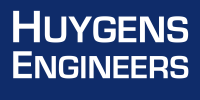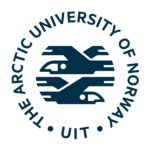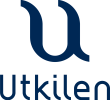Wärtsilä is a leading provider of ship machinery, propulsion and manoeuvring solutions, supplying engines and generating sets, reduction gears, propulsion equipment, control systems, and sealing solutions for all types of vessels and offshore applications. Wärtsilä supports its customers throughout the lifecycle of their installations, providing service and maintenance, as well as reconditioning solutions both for ship machinery and power plants. The company is expanding its business model by introducing innovative services which support its customers’ businesses, including services for multiple engine brands in key ports, long-term service contracts, predictive and condition-based maintenance, as well as operations and maintenance contracts. Wärtsilä is also a leading supplier of power plants for the decentralized power generation market, offering power plant solutions based on oil, gas and dual-fuel engines, as well as biomass-fuelled heat and power plants. Wärtsilä has more than 19,000 employees and 130 offices in around 70 countries worldwide dedicated to its clients’ businesses.
Wärtsilä is represented in the SeaTech Project by Wärtsilä Netherlands (WAR NL), and by Wärtsilä Finland (WAR FI). Wärtsilä will handle overall coordination of the project and provide significant input and guidance to the development and demonstration of the bio-mimetic wing concept. Wärtsilä Finland will lead the advanced dual fuel engine development as well as the demonstration of the engine.
Founded in 2013, Huygens Engineers is a partner in the development and design of products and solutions involving moving parts and fluids in the disciplines of mechanical engineering and electrical engineering. The company’s core business is solution development, component development, Finite Element Analysis (FEA) and CFD simulation, prototype and pre-production series. Huygens Engineers focus on 3rd party research and development in projects with mechanical and industrial engineering, drive technology, thermodynamics, fluid mechanics and smart technology. The firm’s client portfolio includes companies operating in marine propulsion, renewable energy (such as Tidal Power Turbines) and the offshore industry as well as oil and gas and food processing. The company is also involved in the certification of innovative propulsors in market niches for SMEs lacking key capabilities and cooperates with Wärtsilä for main market applications.
As part of the SeaTech Project, Huygens Engineers will be responsible for the design and mechanical engineering of the dynamic wing, including two generations of prototypes to be tested in a towing tank and real sea conditions respectively, followed by the industrial design of a full-scale wing, being the ultimate project outcome.
Liewenthal Electronics is a privately-owned engineering and R&D company established in 1990. Operating in Estonia, Liewenthal Electronics is a provider of high quality and cost-effective engineering services. The company specializes in embedded electronics and software development, mainly in the fields of industrial control, telecommunication, space technology, medical equipment and consumer electronics7. Liewenthal’s staff consists of nearly 40 highly skilled software and hardware engineers with graduate degrees. Twenty-five years of experience designing various embedded systems has made Liewenthal one of the most influential engineering partners in the region. Liewenthal’s expertise includes a microprocessor and programmable logic device (CPLDs, FPGAs) applications, embedded Linux deployment and PC applications. The company is a certified member of the Xilinx Alliance Program and has established a Quality Management System (QMS) that has been ISO 9001 certified since 2001 with a strong track record of bringing quality products to market in cooperation with market leaders and innovators from Denmark, Sweden, Finland and Estonia. It typically subcontracts for the biggest telecom, industrial and home entertainment companies in the Nordic region. Liewenthal’s QMS has been ISO 13485 compliant since 2014, also enabling Liewenthal to design medical devices. In 2018 the company turnover was €2.04 million, with 78% stemming from EU exports and 22% in domestic sales.
In the SeaTech Project, Liewenthal’s expertise in designing embedded software and Field Programmable Gate Arrays (FPGAs) will be used to help Wärtsilä Finland to develop the control functionality of the SeaTech engine innovation.
The National Technical University of Athens (NTUA) is the oldest technical university in Greece covering all engineering disciplines. NTUA is involved as a prime or principal contractor in national and international applied research projects funded both by the public and private sectors. The School of Naval Architecture and Marine Engineering (SNAME) serves this unique engineering discipline in Greece. It exhibits excellence in the following research areas: energy and the environment, marine renewable energy, and green ships. The Ship and Marine Hydrodynamics Section of NTUA-SNAME covers the educational, research and training needs in all aspects of hydrodynamics. It also offers services auxiliary to the shipbuilding and shipping industry in Greece and abroad. Its BioPropulsion Research Group has been involved in the development of innovative, highly efficient and Renewable Marine Energy Propulsion Systems along with their integration into ship design. Members of this research group have been involved in high-end research into wave modelling and wave transformation, hydrodynamics of ships and floating bodies, ocean wave statistics, stochastic modelling of wave climate, wave energy, integrated graphical user interfaces for marine/coastal applications and others. Following Greece’s maritime tradition, the Laboratory for Maritime Transport (LMT-NTUA) is active in practically all areas of maritime transport R&D. Among other fields, NTUA‐LMT has expertise in marine safety; risk analysis, assessment, and engineering; oil marine pollution; confrontation methods and techniques; life cycle analysis and assessment; human factors and reliability; modelling, salvage, resilience, and system analysis engineering; maritime security; ship and port operations; ship recycling; and management of ship-generated waste.
In the SeaTech project, NTUA will be responsible, together with Southampton University, for modelling and towing tank tests of the dynamic wing, plus the demonstration of the dynamic wing in sea conditions using ship models. NTUA will also support the Arctic University of Norway in conducting LCCA exercises.
The Arctic University of Norway (UiT) is an internationally recognized university in Northern Norway with 16,000 students and 4,000 employees. The UiT is an interdisciplinary team that focuses on nautical- and engineering-based maritime operations and solutions. Through its unique academic curriculum and research groups, the University has a long tradition in designing new systems that perform increased safety, reduced environmental impact and achieved new cost-effective solutions compared to existing maritime solutions in ship management and operation. Their primary focus and objectives as an institution are respectively: the development of technology and preparedness together with an explication of risk exposure during operational procedures in the High North as well as to provide research that can incite innovation and development for business and industry in the Nordic region. Industry partners play an essential role in initiating and developing new research projects. The university has five strategic research areas, including Energy, Environment, Climate, Society, and Sustainable use of resources. The annual turnover is approximately €350 million. UiT is currently involved in numerous EU and other externally funded projects with an annual total of €65 million and has the scientific, management and financial capacity for running EU projects. The SeaTech Project will be deployed at the Institute of Technology and Security (ITS). Research at ITS covers the intersection between cybernetics, science, physics and nautical operations, thus contributing to the design of new applications aimed at solving global challenges in the maritime area.
In the SeaTech Project, UiT will be mainly responsible for conducting the LCCA analysis of the dynamic wing and engine innovations, followed by a system LCCA and the development of KPIs as part of the Advanced Data Analytics Framework (ADAF), thus confirming the combined performance of both innovations in real sea conditions.
The University of Southampton was founded in 1952 but is already one of the leading universities in Britain. It has been ranked 8th in the UK for research and has 97% of its research environment rated as world-leading or internationally excellent (Research Excellence Framework, 2014)14. Southampton is an excellent venue for conducting cutting-edge research and for providing high-quality education. It has more than 17,100 undergraduate and 7,500 postgraduate students from over 130 different countries15. In 2017/2018 alone, the university has received over €135.3M in research grants and contracts, including over €18.7M from the European Commission.16 Southampton has a successful track record of industrial collaborations and is at the centre of a cluster of local high technology companies. To ensure the impact of its research projects, the University of Southampton’s Research & Innovation Services (R&IS) is responsible for professional Intellectual Property (IP) protection and supporting commercial development within various industries. R&IS has had considerable success as a world-leading business incubator and has launched 28 spin-out companies since 2000. Southampton also has a strong record of accomplishment of working in European projects, especially within Horizon 2020 and its predecessor Framework Programmes. The Faculty of Engineering and Physical Sciences (FEPS), including the school of engineering, has a strong background in working on international research projects, including 109 H2020 projects worth over €61 million. Southampton is also home for the Southampton Marine and Maritime Institute (SMMI), which is a unique internationally recognised centre of excellence, bringing together research, innovation and education communities from universities, research institutes, industry and governments. As the most significant entity of its kind in the world, it brings together over 1,000 academics and research scholars to tackle current and future maritime challenges, by utilising a unique cross-disciplinary spectrum of expertise covering humanities, natural sciences, physical sciences, engineering and social sciences.
In the SeaTech project, the University of Southampton will be responsible for conducting various towing tank tests to confirm the performance of the dynamic wing before it will be deployed in real sea demonstration.
Utkilen AS is a shipping company with headquarters in Bergen, Norway. The company, with a history dating back to 1916, was founded in 1967 and owns and operates around 20 chemical tankers ranging from around 5,000 to 20,000 deadweight tonnage (dwt) in size. Approximately 450 Norwegian and international seagoing personnel work onboard their vessels and the shore organization totals about 50 employees. Utkilen possesses safety and quality systems certified by Det Norske Veritas. Utkilen is one of the major seaways transporting companies of chemicals and other bulk liquid cargoes in Northern Europe. The company has in-house functions for chartering, operations, ship management and crewing. It is the policy of the company to develop long term business with first class charterers, and our contract coverage is currently in excess of 60 %. Utkilen primarily serves the Northern European market (extensive service in the Baltic Sea) with offices in Norway and Latvia. The company also has an office in Manila, Philippines. As part of the company’s mission, Utkilen want to be the leading, preferred and most reliable transporter of bulk liquids worldwide.
In the SeaTech Project Utkilen will be responsible for providing the end-user perspective to guide the development of the engine and dynamic wing innovations. In particular, real-life data from Utkilen’s short-sea vessels will be fed into the ADAF to provide realistic simulations of the performance of both innovations on a real vessel.






